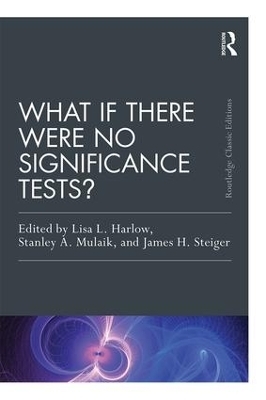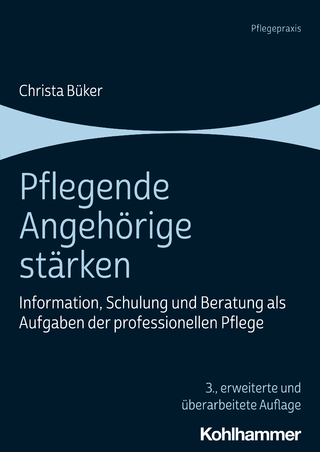
What If There Were No Significance Tests?
Routledge (Verlag)
978-1-138-89247-7 (ISBN)
The Classic Edition’s new Introduction demonstrates the ongoing relevance of the topic and the charge to move away from an exclusive focus on NHST, along with new methods to help make significance testing more accessible to a wider body of researchers to improve our ability to make more accurate statistical inferences. Part 1 presents an overview of significance testing issues. The next part discusses the debate in which significance testing should be rejected or retained. The third part outlines various methods that may supplement significance testing procedures. Part 4 discusses Bayesian approaches and methods and the use of confidence intervals versus significance tests. The book concludes with philosophy of science perspectives.
Rather than providing definitive prescriptions, the chapters are largely suggestive of general issues, concerns, and application guidelines. The editors allow readers to choose the best way to conduct hypothesis testing in their respective fields. For anyone doing research in the social sciences, this book is bound to become "must" reading. Ideal for use as a supplement for graduate courses in statistics or quantitative analysis taught in psychology, education, business, nursing, medicine, and the social sciences, the book also benefits independent researchers in the behavioral and social sciences and those who teach statistics.
Lisa L. Harlow is Professor of Psychology at the University of Rhode Island. She is the Editor of Psychological Methods and a past president of the American Psychological Association‘s Division 5. Stanley A. Mulaik is Professor Emeritus of Psychology at Georgia Institute of Technology. His research interests include philosophy of statistics and causality and objectivity. James H. Steiger is Professor of Psychology and Human Development at Vanderbilt University. His research interests include the use of confidence intervals to evaluate the fit of statistical models.
New Introduction. Preface. Part I: Overview. L.L. Harlow, Significance Testing Introduction and Overview. Part II: The Debate: Against and For Significance Testing. J.Cohen, The Earth Is Round. F.L. Schmidt, J. Hunter, Eight Objections to the Discontinuation of Significance Testing in the Analysis of Research Data. S.A. Mulaik, N.S. Raju, R. Harshman, There Is a Time and Place for Significance Testing. R.P. Abelson, A Retrospective on the Significance Test Ban of 1999 (If There Were No Significance Tests, They Would Be Invented). Part III:Suggested Alternatives to Significance Testing. R.J. Harris, Reforming Significance Testing via Three-Valued Logic. J.S. Rossi, Spontaneous Recovery of Verbal Learning: A Case Study in the Failure of Psychology as a Cumulative Science. J.H. Steiger, R.T. Fouladi,Noncentrality Interval Estimation and the Evaluation of Statistical Models. R.P. McDonald,Goodness of Approximation in the Linear Model. Part IV: A Bayesian Approach to Hypothesis Testing. R.M. Pruzek, An Introduction to Bayesian Inference and Its Application.D. Rindskopf, Testing 'Small,' Not Null, Hypotheses: Classical and Bayesian Approaches.C.S. Reichardt, H.F. Gollob, When Confidence Intervals Should Be Used Instead of Statistical Significance Tests, and Vice Versa. Part V: Philosophy of Science Issues. W.W. Rozeboom, Good Science Is Abductive, Not Hypothetico-Deductive. P.E. Meehl, The Problem Is Epistemology, Not Statistics: Replace Significance Tests by Confidence Intervals and Quantify Accuracy of Risky Numerical Predictions.
| Erscheinungsdatum | 02.06.2016 |
|---|---|
| Reihe/Serie | Multivariate Applications Series |
| Zusatzinfo | 40 Tables, black and white; 35 Halftones, black and white |
| Verlagsort | London |
| Sprache | englisch |
| Maße | 152 x 229 mm |
| Gewicht | 610 g |
| Themenwelt | Geisteswissenschaften ► Psychologie |
| Mathematik / Informatik ► Mathematik | |
| Pflege ► Studiengänge ► Pflegewissenschaft | |
| Sozialwissenschaften ► Pädagogik | |
| Sozialwissenschaften ► Soziologie | |
| ISBN-10 | 1-138-89247-5 / 1138892475 |
| ISBN-13 | 978-1-138-89247-7 / 9781138892477 |
| Zustand | Neuware |
| Haben Sie eine Frage zum Produkt? |
aus dem Bereich


